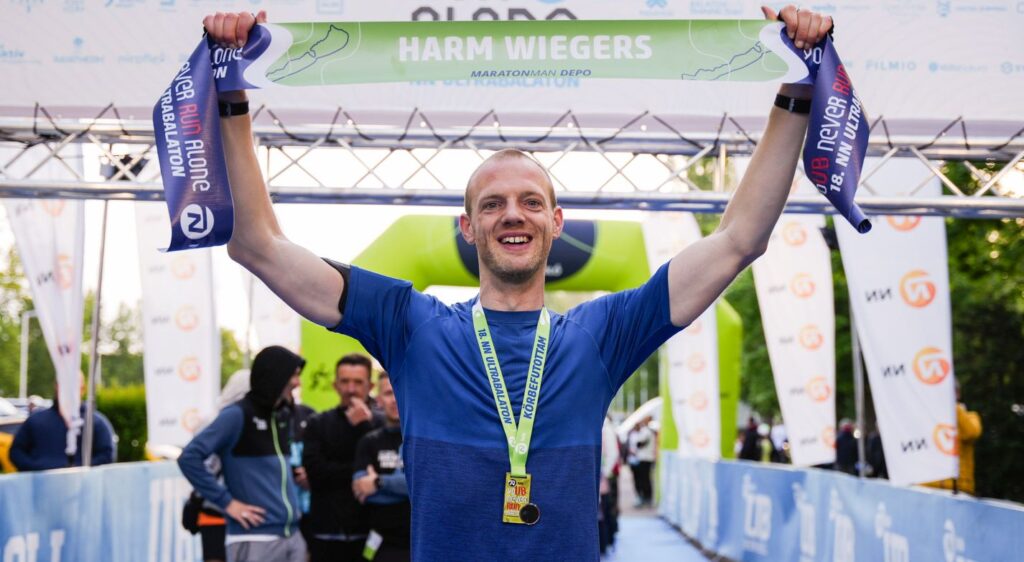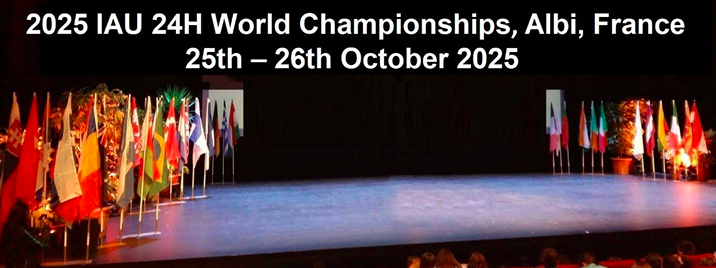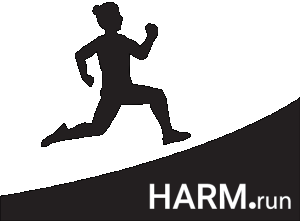
The two >200k races of this year taught a simple but precious lesson: when working on something valuable we must not hope we can somehow finalize it in the end, but do what’s required early on to bring the goal within reach. This insight first presented itself at Ultrabalaton, and then on a slightly different level at the recent 24 hour race.
Ultrabalaton
Around 7 a.m. I stood at the starting line of this monster in Hungary: a 211k loop around the giant lake Balaton. The sheer size of this race made it clear that you cannot simply complete the course at full speed. So I started at a comfortable pace, hoping to hold this during the first few marathons. The rolling hills and the lush lake shores passed by steadily. Although the race went well, the pace slowly decreased over time. When passing a bunch of balloons in the shape of the seemingly random number 126 which turned out to be the 3-marathon point, I was doing 9 or even 8.5 km/h (5.5 miles/h) instead of the 11km/h starting pace. To me this indicates that the energy with which we start a big undertaking is usually not what we maintain for a prolonged duration.
Progress remained smooth, albeit slower and more tired, until 150k. Me and my support cyclist ploughed on through dimly lit villages in the night, where we finally glimpsed a curb in the lakeshore. We were approaching the outer edge of the lake, promising a finish line somewhere around the bend! But the last 50k were of course the hardest, as the body was more than tired and the spirit not as steadfast. The goal of finishing within 24 hours demanded we maintained 8km/h pace: 7:30 minutes each km. At one point my crew shouted: “I want to see a km in 7:30 now!”, which I then delivered. And again, and again, until the hours slowly passed. The race got harder every hour but this game got us through.

An hour into this game, I realized that I was hurrying at the end of each km to finish it within those 7:30 minutes. And I immediately saw that this was the wrong tactic: a climb or any unexpected obstacle at the end of that km would prevent me from making the time. It dawned on me that we sometimes leave such things to chance, while it would be better to take responsibility. So from then onwards I started each km strong, creating a buffer in case of unexpected hindrances. The result? Most kms were now run well within 7:30 (aid stations and toilet breaks excluded) and we won so much time we finished in 23h33. Don’t wait until your goals are almost out of reach, but do your best from the start and your chance at success will increase.
211 kilometers
23 hours and 33 minutes.
6 hours of endless 7:30-kms

24 hour National Championships
The next >200k race challenged me with a question two months later: have you really internalized this lesson? After all, it’s easy to spot a lesson, but way harder to apply it. So the test presented itself at the 24 hour National Championships. The race design was simple: the participants ran loops of 1289 meters (0.8 miles) for 24 hours and whoever completed the farthest distance won the race. My personal goal was to cover 210k (the limit required to qualify for the 24 hour World Championships). That’s a big goal and especially the last hours of this ordeal promised to be hard. With the lesson imprinted in the words don’t delay to do what’s required, I knew the starting phase of the race was of paramount importance. This is paradoxical: while the race is determined in the final hours, it’s only the groundwork laid out in the first 80% that permits a decisive finale. So the key was to not just hope to make up for lost time in the final and most strenuous hours, but rather stick to a relentless schedule from the start. This way there would be some buffer for the part where the unavoidable physical and mental meltdown would slow us all down.

“Don’t wait to do your best until your goals are almost out of reach” – this lesson is hardly about running, but applies to all things in life. Starting to work on that business proposal or presentation prevents you from having to pull all-nighters when the deadline approaches. Incorporating healthy eating habits prevents the need for a crash diet when summer comes around. I’ve made lots of mistakes in my life that led to last-minute work, and that was never fun. The simple sport of running suddenly made this lesson very clear and gave a chance to practice at it.
“Don’t wait to do your best until your goals are almost out of reach”
The words of that quote helped maintain the 11km/h starting pace during the first 12 hours (though apart from toilet breaks I still missed a few kms, so there’s still work to do). The pace later dropped a bit but remained decent enough to bring that goal of 210k within reach, without the need for a miracle to get it. Most times we don’t reach our goal with a sudden, unexpected surge, but rather after a great body of consistent work enables us to bridge that last remaining small gap.

The same lesson in the micro and the macro: for running a fast enough km the first phase of that km is key, and for a big ultra-goal the preparatory work in the first phase is essential. I found this lesson in running but believe it is applicable to many areas of life. Whenever we’re chasing a BHAG (Big Hairy Audacious Goal): don’t wait until your goal is almost out of reach. Sometimes we know what we want, but hesitate to take action. Sometimes out of fear or insecurity for what’s ahead of us. But this can be a false kind of self-protection: we avoid the confrontation with the obstacles on the road, but at the same time we rob ourselves of any chance of succeeding. Sometimes we think we can delay taking the required steps, but that’s counting our chickens before they hatch: maybe you’re short on time or energy later on, and the opportunity you took for granted has now eluded you. Don’t wait, don’t delay.
Other afterthoughts
Lesson applied, but this was not a perfect race. For one thing, I quit trying when I reached that 210k goal after about 21 hours and spent the remaining 3 hours walking very slowly, adding only 10 more kms. I gave this a lot of thought, and realize I’ve fallen for this trap found earlier in the Devil’s Trail 24h Backyard: when we reach our goal, we often give up instead of going to the max. And so the preparations for the World Championships will require both mental training and rethinking of the goalsetting process. Let’s go!
Dream on!

References
-BHAG: this term was first coined in the book Good to great by Jim Collins and Jerry Porras
-Often we don’t realize our full potential because the bar was set too low and we stop before we’ve reached what we’re capable of. First described in this lesson from the Devil’s Trail Backyard Ultra
-24h National Championships official site and results. Be sure to read this race report by winner Jort van Zutphen who ran 232k! (both in Dutch)
-Top picture was made while running Ultrabalaton: there’s a string of runners and their cyclists on the road (right), all approaching the hill with Szigliget castle
-Strava logs: Ultrabalaton and 24h National Championships
-The 24h World Championships of 2025 will be hosted in Albi, France (official site)

Leave a Reply